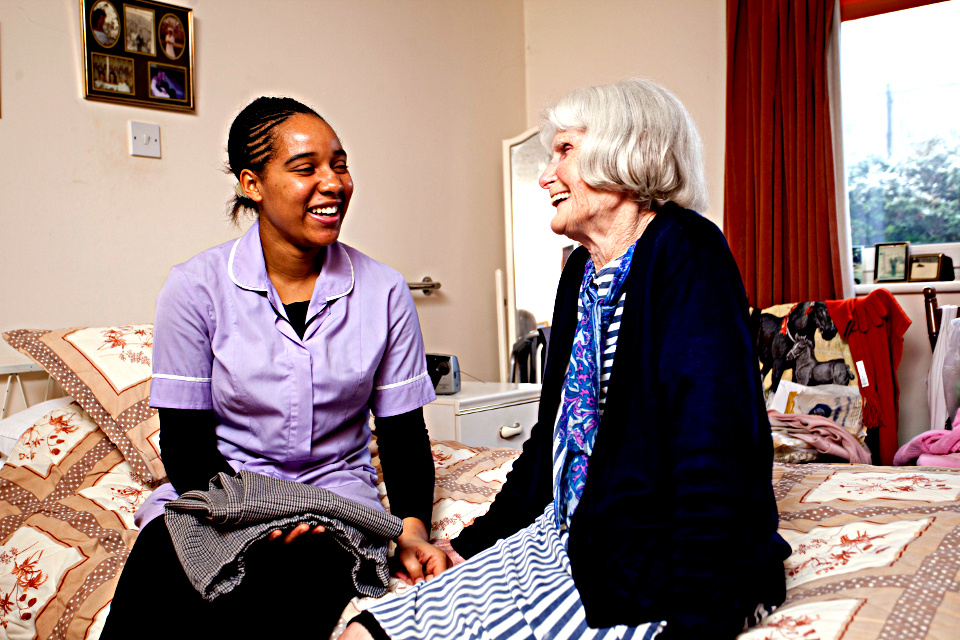Norman Lamb: improving care through a joined up approach
Care and Support Minister Norman Lamb on the importance of integrated care and the 'integration pioneers' who are leading the way.

Too often people in our country experience failures of care. Not because health and care professionals lack skill or compassion. Not because of money. But because health and care services are uncoordinated, sometimes uncommunicative, and centred around what suits organisations and structures, rather than what helps people lead good lives.
The result is that many people have experienced the revolving door of hospital departments, clinics and care homes. Or waited seven months for a wheelchair to arrive, only to find it unsuitable. Or endless Groundhog Days, explaining their health history to GPs, physiotherapists, care support workers and nurses, ad nauseam. Poor care and massive pressure on a dysfunctional system.
This has to change. Doing nothing lets down patients and will bankrupt the NHS and care services.
It has to change because the country’s health needs are changing. The number of people with more than one long term condition, such as diabetes, asthma or dementia, is predicted to rise from 1.9 million in 2008 to 2.9 million in 2018. This statistic alone means delivering better integrated care and a more sustainable NHS and care system has never been more urgent.
If we want to deliver care which meets the needs of the patient, if we truly want person-centred care, if we truly want to protect our NHS for the future, new coordinated ways of working are the only answer.
By that I mean health and care services joined together, providing support to people who need it the most. That could be helping an elderly person living independently at her family home through technology. Or it could be helping people who regularly turn to A&E services because of a long term condition to be more supported at home, to prevent them reaching crisis point.
It does not have to be just those – there’s much collaborative work to celebrate in this country. But more people deserve and desperately need this quality of care and treatment.
This is why I’m delighted to announce 14 bold initiatives across the country, leading the way for pioneering coordinated care. These exemplary projects were selected through a robust process, which included a panel of internationally renowned experts who drew together global expertise and experience of how good joined up care works in practice.
Their innovative approaches are designed to transform the way health and care services are delivered. This about health and social care services working together to provide better support at home and earlier treatment in the community to prevent people needing emergency care in hospital or care homes.
This week I visited the Memorial Hospital in Greenwich, one of our 14 integrated care pioneers, where over 2,000 patient admissions have already been avoided thanks to interventions by the Joint Emergency Team . This amazing team responds to alerts within care homes, A&E departments and GP surgeries. For example, working together with carers and nurses, they have ensured those with severe mobility problems have access to equipment and therapies keeping them out of hospital.
At Greenwich, I met 75 year old Maureen, who after her heart surgery found it difficult to manage at home by herself. After an assessment, she was given 4 care visits a day and a course of physiotherapy to help her recovery and keep her mobile. Without this help, she would have been admitted into residential nursing care, but is now managing independently at home with help from her dedicated social worker.
And in South Devon and Torbay, another pioneer, they have found that by bringing professionals closer together has cut waiting times. Local patients used to wait eight weeks for physiotherapy service, now they wait only 48 hours. They also offer people, who frequently use A&E because of alcohol problems, holistic care – whether it is helping them through a detox or looking at their housing issues. One patient said “I will never forget the team, they are life savers”.
These and the other pioneers I’ve announced are not pilot projects. They’re not trials to see if coordinated care is better for individuals. We already know it is. They have been selected to act as exemplars of the coordinated care, tailored to meet the need a of each individual, that we, our family and friends want to experience.
These torchbearers for change will help spread a joined up approach to health and social care that everyone can benefit from.
The pioneer programme is part of a movement to make coordinated care the norm. Earlier this year we announced £3.8 billion to support integrated health and care – the Integration Transformation Fund. The fund is an opportunity for local services to do something transformational to improve the lives of the people that need it most. It will be available in 2015 but already the planning has started across the country.
I want local areas to pursue coordinated care, at scale and at pace. At a recent conference, some local areas told me they weren’t talking about what could be achieved through the Integration Transformation Fund alone, they were talking about what could be achieved by pooling 100 percent of the resources between the NHS and councils’ care budgets.They are also looking at housing and other services impacting on health and wellbeing.
That’s the kind of radical change I want to see; the kind that frees our most vulnerable citizens from the stress and fatigue of repeating their medical mantras, from feeling abandoned or forgotten by a health and care system that doesn’t communicate properly and from the uncertainty and worry of unnecessary hospitalisation or residential care. It is what they – indeed what we all – expect and deserve.